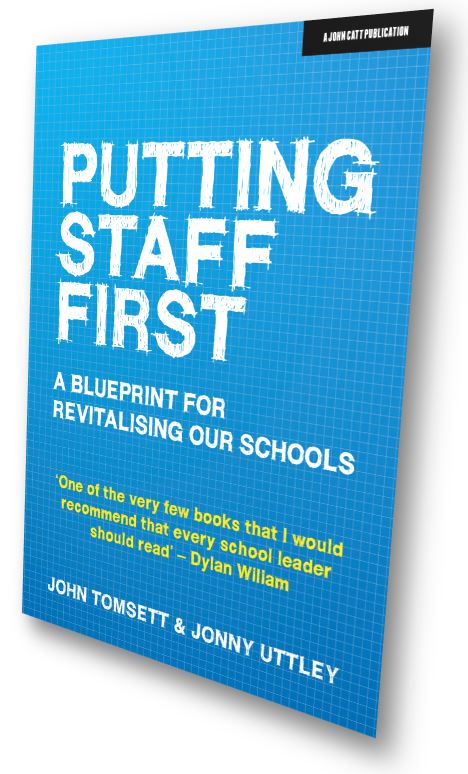I am off to fresh woods and pastures new.
I am in my eighteenth and final year as a secondary school head teacher. In September, for the first time in over three decades, I will not be a member of school staff.
So, many people get to my position and attempt to articulate what they have learnt about leading schools. Why should I be any different? This is the second in a series of brief posts over the last few weeks of the school year, in which I explain a number of things I have learnt about headship.

Putting staff first is one of the more controversial learning points in my career as a headteacher. I used to proclaim that I put students and staff equal first, but then had the courage to go the whole way and declare that we should consider staff above students.
I think “Students first” is a misplaced sentiment, something that was recognised by Michael Fullan, who noted that “children-first stances are misguided”. By putting staff first you are on the way to providing for students the one thing which will help them make good progress in their learning: truly great teaching.
The thing is, if we do not ensure, first and foremost, that our teachers are happy, healthy, well-qualified, highly motivated, hard-working, well-trained experts, they cannot be their best for their students. Consequently, a school which does not prioritise professional learning and managing staff workload – which, as a consequence, will help improve staff wellbeing – is disadvantaging its own students.
High quality teaching is the only thing that really matters when it comes to improving students’ outcomes. Consequently, I expect teachers to accept the professional obligation to improve their practice; indeed, I consider that to be one of the most important aspects of being a teacher in any school. There is a reciprocal obligation on behalf of the school, of course, and that is to support teachers to be the best that they can be.
Whilst it is easy to say that schools would not exist if it were not for the students, the converse is that without truly great school staff, the students would not be taught well enough. What we need – as recruiting subject specialist teachers, school leaders and specialist support staff becomes increasingly difficult – is a quiet revolution in how we treat the adults in schools.
Whisper it if you must – because it can upset some people – but if you want the very best for your students, you need to put your staff first.
